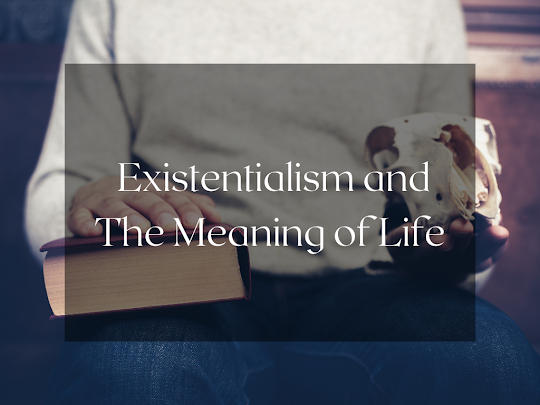Every day we live to seek the meaning of it. Sometimes there are times where we consistently do our trivial routines and suddenly stop for a minute, just to question ourselves; “why am I doing this? Is my life meaningful enough?”. There are also moments in which we stress over insignificant problems and think “what is actually the meaning of this all?”
In branches of philosophy, this phenomenon is heavily discussed in existentialism. It is a term coined in modern philosophy which proposes an idea that humans are supposed to be individually free from any limitations in the way we think, act, and feel. This term was introduced by Søren Kierkegaard and Friedrich Nitezsche in the 19th century.
Later in 1940, it was widely brought in the form of nonfiction and fictional works by a notable and famous existentialist French philosopher Jean Paul Satre (1905-1980). Simone de Beauvoir, his wife, also contributed a lot in the widespread theory, particularly by merging existentialism and feminism. On the other hand, Albert Camus popularized it through his own works but mainly evokes Absurdism, an idea which proposes that humans are actually living in a meaningless and chaotic universe. Therefore, the concept of existentialism always overlaps with absurdism (Crowell, 2020).
Fundamentally, existentialism was born amidst the chaotic situation after world wars, where people were losing their self-consciousness and hope in humanism. The basis of it was society’s struggle to face the death crisis and weariness of being alive. They had to embrace the nothingness and how broken they are to fully accept the absurdity of life, before being free to create their own meanings. Over time, philosophers and scholars were challenged to study this phenomenon.
Existentialism actually offers a relieving idea that humans don’t have any inherent meaning of life. At first, we might think that this philosophical theory is bleak and sounds pessimistic, and thus being alive is pointless rather than meaningful. In fact, the stance of this philosophy is that we create the meaning of life by ourselves in this meaningless world. In existentialism, being alive is not about what we take from the world; it’s all about what we give instead.
When we were born, we were never destined to search for the meaning of life; we simply exist as human beings. It would be absurd for us to seek meanings while in fact we are never told what exactly our meanings are. The world itself doesn’t have any meaning, therefore existentialism came to tell us that it is us, humans, who are supposed to give the world the meaning of life.
Let’s conceptualize this with Albert Camus’s theory of absurdity, in which he proposes three stages of life. The first stage is philosophical suicide where we seek meaning from external factors, such as validation from others and temporary satisfactions. The second stage is physical suicide where we realize that the world never offers a satisfaction; everything is meaningless. The final stage is acceptance, where we finally embrace the fact that the world is meaningless and we are free to create our own meanings. Eventually, this philosophy gives us an ultimate freedom to create our meaning and encourages us to start living in a more profound way.
Existentialism is also a philosophy that supports the antiracism movement. It teaches us to value humans regardless of their race. According to Heter (2021), existentialists view people as an individual without their physical appearance, because in the end, what is left is only our essence of being and the meaning we have created
Start to be free, create your own meaning of life. There is no standard in setting your meaning. It doesn’t have to be big, it could be anything; exploring new songs every day, feeding stray cats on the street, or simply just waiting for sunrise to burst through the window. Don’t let the world define you, it’s you who define your own world, as Satre said, man is nothing else but what he makes of himself.
References:
Crowell, Steven. 2020. "Existentialism", The Stanford Encyclopedia of Philosophy. (Summer 2020 Edition).
Heter, T. S. (2021). “Existentialism is an Antiracism”. Sartre Studies International. 27(2): v-vii.
Writer: Maychaella Novita
Editor: Andrea Zelina


Comments
Post a Comment